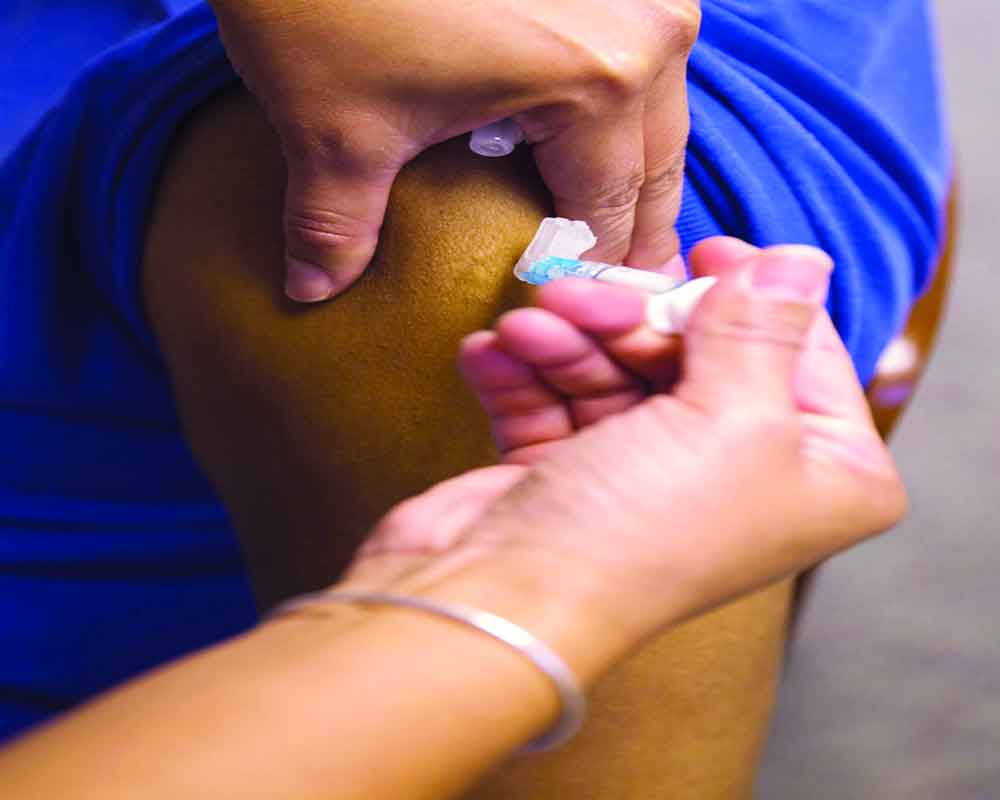Months after admitting in a UK court that its COVID-19 vaccine, which is being sold as Covishield in India, may have a potential rare blood clot side effect known as Thrombosis with Thrombocytopenia Syndrome (TTS), pharma giant AstraZeneca has recalled the jab made in collaboration with Oxford University.
The British-Swedish multinational pharmaceutical company faces lawsuits from more than 50 alleged victims and their families who claim fatalities or permanent brain injuries following vaccination during Covid pandemic. The company's COVID-19 vaccine is being sold as Vaxzevria in Europe.
AstraZeneca had in February this year admitted in the court that its COVID-19 vaccines could in very rare cases have the potential to cause Thrombosis with Thrombocytopenia Syndrome (TTS), a condition that leads to blood clots and low platelet count.
However, the company in a statement said that withdrawal has been initiated due to a surplus of available updated vaccines since the pandemic. It has voluntarily withdrawn the "marketing authorisation" for the vaccine within the European Union, and similar applications are expected to be made in other countries where the vaccine was approved.
However, it remains unclear whether the vaccine will be withdrawn in India, where it is manufactured by the Serum Institute of India (SII). The SII has not yet commented on the developments.
The vaccine has come under the lens of the Supreme Court in India which two days ago agreed to hear a petition on a rare side-effect associated with the jab.
A date for the hearing has not been set but Chief Justice of the Apex Court DY Chandrachud acknowledged the issue, which includes demands for an expert panel to investigate the side-effect and for the Government to provide compensation for families of those who may have died after taking the drug. An early hearing of the petition, though, has been ruled out. According to reports, the SII has a stock of 250 million doses of Covishield at its Pune facility, which could be used for any future eventuality.
Sources at the SII had in 2022 indicated plans to halve the production of Covishield as it had a 500 million doses inventory at its facility. Half of these were finished doses, while the remaining were bulk doses that were not converted to formulation.
Meanwhile, the European Medicines Agency, the medicines regulator for the European Union (EU), issued a notice on Tuesday to confirm that Vaxzevria —known as Covishield in India — is no longer authorised for use in the 27-member economic bloc after AstraZeneca (AZ) voluntarily withdrew its authorisation in March.
"AstraZeneca has therefore taken the decision to initiate withdrawal of the marketing authorisations for Vaxzevria within Europe. We will now work with regulators and our partners to align on a clear path forward to conclude this chapter and significant contribution to the COVID-19 pandemic," it said.
"We will partner with regulatory authorities globally to initiate marketing authorisation withdrawals for Vaxzevria, where no future commercial demand for the vaccine is expected," it was quoted by The Daily Telegraph as saying.
The company said, "We will now work with regulators and our partners to align on a clear path forward to conclude this chapter and significant contribution to the COVID-19 pandemic." AstraZeneca added that the company was "incredibly proud" of the role Vaxzevria played in ending the global pandemic.
"According to independent estimates, over 6.5 million lives were saved in the first year of use alone and over three billion doses were supplied globally. Our efforts have been recognised by Governments around the world and are widely regarded as being a critical component of ending the global pandemic," the company said.
In a statement issued last week AstraZeneca had expressed sympathy for those who have lost loved ones or reported health problems, but reiterated its commitment to patient safety and adherence to "stringent standards to ensure the safe use of all medicines..."
























